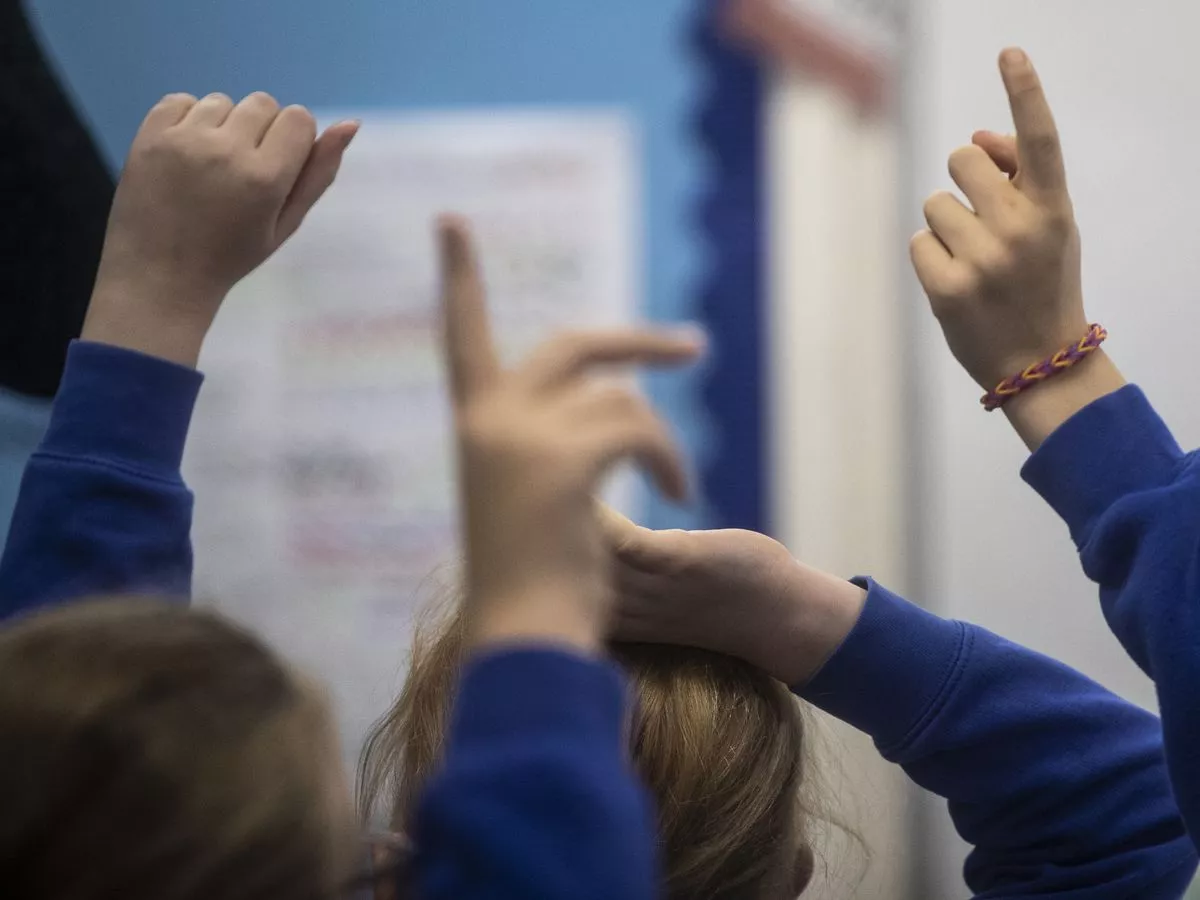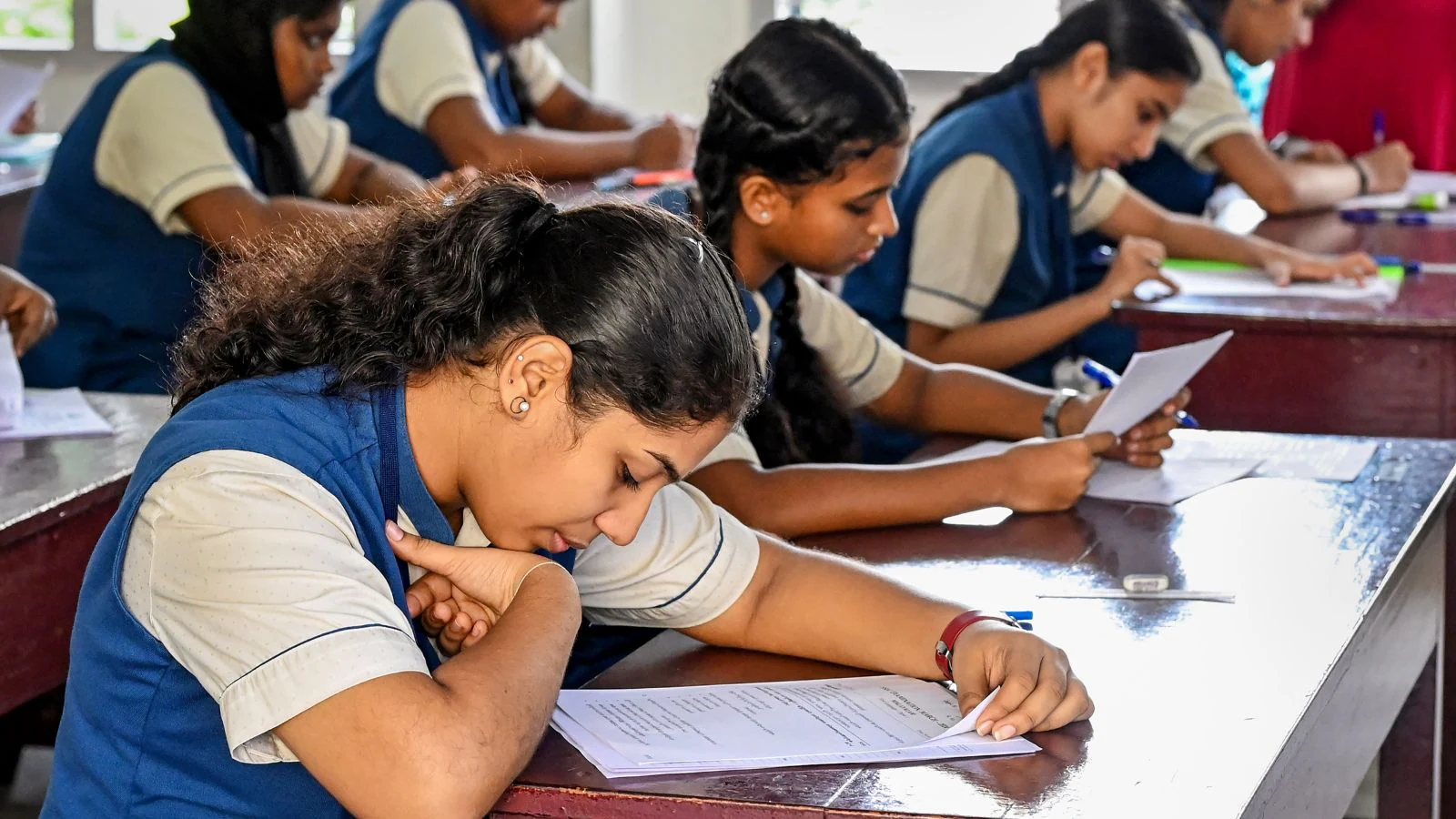Copyright walesonline

Primary school children in Wales are vaping, one in 10 report clinically significant behavioural difficulties and half own a smartphone. These worrying findings come from what is being called the most comprehensive ever study of the health and wellbeing of children aged seven to 11 in Wales. More than 50,000 children from all over Wales responded to the wellbeing survey by the School Health Research Network. It also revealed that seven in 10 pupils had problems sleeping and one in three seven to 11 year-olds said they use social media a few times a week or every day – rising to one in two among 10 to 11-year-olds. Read the biggest stories in Wales first by signing up to our daily newsletter here . Overall, 510 primary schools took part in the study, representing 42% of all state maintained primary schools. One independent school also participated with a total 51,662 children in primary school years three to six completing a SHRN questionnaire. The findings follow a report from the chief inspector of schools listing all the things primary schools in Wales are doing well. Although most children told researchers they had positive connections with teachers, peers, and school life, half said they had been bullied at school. SHRN is a policy research partnership between Cardiff University the Welsh government and Public Health Wales and the report findings are already being used by educators, policy-makers, health workers and researchers to create effective interventions to help pupils, the authors said. The SHRN was initially established in all secondary schools in Wales in 2013, with expansion into primary schools beginning with a pilot in 2022. Today's report is the latest phase of research which aims to look at issues affecting children from the age of seven to 11. Expanding the research into primaries can help schools and others work with pupils across childhood and adolescence as well as supporting milestones such as the move from primary to secondary school, researchers said. The report revealed that among seven to 11 year-olds across Wales: Vaping, which is an issue reported among secondary school pupils , is also "emerging" among primary school children in years 5 and 6, the report adds. Of the Year 5 and Year 6 pupils, 6% reported having tried a vape once or more than once. A higher proportion of children identifying as neither a boy nor a girl reported having tried a vape compared to those identifying as girls and boys and 7% of children from low affluence families reported trying a vape, compared to 5% in both medium and high affluence families. On bullying , around half (51%) of learners reported having been bullied at school in the past couple of months and bullying victimisation varied little by family affluence. 18% of learners reported they had bullied others in the past couple of months and 12% of Year 6 children reported having cyberbullied others in the past couple of months. A higher proportion of boys than girls reported bullying and being bullied. Children who identified as neither a boy nor a girl reported the highest rate of bullying perpetration. That varied for cyber bullying with 29% of Year 6 children learners reporting being cyberbullied in the past couple of months rising to 56% of learners of all ages who identified as neither a boy nor a girl. There was no difference in reporting cyber bullying between boys and girls. On average, learners from low affluence families experienced higher rates of cyberbullying than those from medium or high affluence. Schools are already using SHRN data to inform their work with children, with bespoke anonymous school reports issued to schools which took part in the research. The findings are increasingly being used by schools to prepare for Estyn inspections and help their approaches to pupil mental health and well-being. At Cogan Primary School in the Vale of Glamorgan, pilot data highlighted areas that could be developed in children’s well-being and peer relationships by the final year of primary in year 6. The school then introduced a programme to support children's self-esteem and "emotional resilience" to help them socially and emotionally. Tom Lewis, health and well-being lead at Cogan Primary said: “SHRN has allowed us to put support in place that quickly made a positive difference to the wellbeing of our year six cohort. We have continued to use this initiative with great results. It’s invaluable for teachers to be able to access robust evidence such as this to ensure all our learners thrive.” Dr Kelly Morgan, director of SHRN at Cardiff University said: “Funded by Welsh Government, our first national SHRN primary school report sheds light on a range of issues affecting children in Wales – with the data on well-being likely to be a big focus for schools and health professionals. "Although seven in 10 (69%) learners rated their life satisfaction as eight or higher out of 10, mental health symptoms tended to be more common, and life satisfaction lower, among learners from less affluent families. Life satisfaction tended to dip slightly as learners got older, but emotional and behavioural difficulties didn’t show the same clear pattern by age. “Our recent expansion of SHRN into primary schools offers an opportunity for joined up working across childhood and adolescence, and an avenue to better understand and support events such as transition to secondary school. This phase is recognised as one of the five key transitional periods in the lives of children and young people.” Lorna Bennett, a consultant in public health at Public Health Wales, said the latest primary school data is a "vital opportunity" to better understand children’s health and well-being in Wales. "We will continue to focus on supporting emotional and mental well-being, and to work together with schools, local authorities, and partners to put evidence into action to support positive health and well-being outcomes for every child," she said. Report co-author Dr Shujun Liu, also based at Cardiff University’s DECIPHer, said: “This report captures the voices of our primary school children and the issues affecting them. By sharing their thoughts and experiences, the children taking part in this research have made a vital contribution to shaping efforts aimed at improving not only their health and well-being, but the health and well-being outcomes for children across Wales." Cabinet secretary for education, Lynne Neagle, said: “It is important that we hear directly from children and young people to better understand how they are feeling and what is impacting them for us to shape future work we do. “Parts of this report made for sobering reading; it is a priority for me to support children and young people’s mental health and wellbeing. As a government we are investing over £13m annually in our Whole School Approach to mental health, with over £3m going directly into school-based counselling. “Alongside this, we continue to support schools to work with families and the wider community to understand their learners’ needs and meet them."



